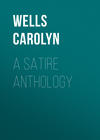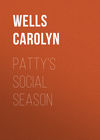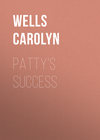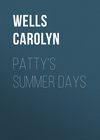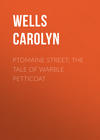Kitabı oku: «A Satire Anthology», sayfa 15
Yazı tipi:
SAME OLD STORY
HISTORY, and nature, too, repeat themselves, they say;
Men are only habit’s slaves; we see it every day.
Life has done its best for me – I find it tiresome still;
For nothing’s everything at all, and everything is nil.
Same old get-up, dress, and tub;
Same old breakfast; same old club;
Same old feeling; same old blue;
Same old story – nothing new!
Life consists of paying bills as long as you have health;
Woman? She’ll be true to you – as long as you have wealth;
Think sometimes of marriage, if the right girl I could strike;
But the more I see of girls, the more they are alike.
Same old giggles, smiles, and eyes;
Same old kisses; same old sighs;
Same old chaff you; same adieu;
Same old story – nothing new!
Go to theatres sometimes to see the latest plays;
Same old plots I played with in my happy childhood’s days;
Hero, same; same villain; and same heroine in tears,
Starving, homeless, in the snow – with diamonds in her ears.
Same stern father making “bluffs”;
Leading man all teeth and cuffs;
Same soubrettes, still twenty-two;
Same old story – nothing new!
Friend of mine got married; in a year or so, a boy!
Father really foolish in his fond paternal joy;
Talked about that “kiddy,” and became a dreadful bore —
Just as if a baby never had been born before.
Same old crying, only more;
Same old business, walking floor;
Same old “kitchy – coochy – coo!”
Same old baby – nothing new!
Harry B. Smith.
HEM AND HAW
HEM and Haw were the sons of sin,
Created to shally and shirk;
Hem lay ’round, and Haw looked on,
While God did all the work.
Hem was a fogy, and Haw was a prig,
For both had the dull, dull mind;
And whenever they found a thing to do,
They yammered and went it blind.
Hem was the father of bigots and bores;
As the sands of the sea were they;
And Haw was the father of all the tribe
Who criticise to-day.
But God was an artist from the first,
And knew what he was about;
While over his shoulder sneered these two,
And advised him to rub it out.
They prophesied ruin ere man was made:
“Such folly must surely fail!”
And when he was done, “Do you think, my Lord,
He’s better without a tail?”
And still in the honest working world,
With posture and hint and smirk,
These sons of the devil are standing by
While man does all the work.
They balk endeavour and baffle reform,
In the sacred name of law;
And over the quavering voice of Hem
Is the droning voice of Haw.
Bliss Carman.
THE SCEPTICS
IT was the little leaves beside the road.
Said Grass: “What is that sound
So dismally profound,
That detonates and desolates the air?”
“That is St. Peter’s bell,”
Said rain-wise Pimpernel;
“He is music to the godly,
Though to us he sounds so oddly,
And he terrifies the faithful unto prayer.”
Then something very like a groan
Escaped the naughty little leaves.
Said Grass: “And whither track
These creatures all in black,
So woebegone and penitent and meek?”
“They’re mortals bound for church,”
Said the little Silver Birch;
“They hope to get to heaven,
And have their sins forgiven,
If they talk to God about it once a week.”
And something very like a smile
Ran through the naughty little leaves.
Said Grass: “What is that noise
That startles and destroys
Our blessed summer brooding when we’re tired?”
“That’s folk a-praising God,”
Said the tough old cynic Clod;
“They do it every Sunday,
They’ll be all right on Monday;
It’s just a little habit they’ve acquired.”
And laughter spread among the little leaves.
Bliss Carman.
THE EVOLUTION OF A “NAME”
WHEN Hill, the poet, first essayed
To push the goose’s quill,
Scarce any name at all he made:
(’Twas simply “A. H. Hill.”)
But as success his efforts crowned,
Rewarding greater skill,
His name expanded at a bound:
(It was “A. Hiller Hill.”)
Now that his work, be what it may,
Is sure to “fill the bill,”
He has a name as wide as day:
(“Aquilla Hiller Hill.”)
Charles Battell Loomis.
“THE HURT THAT HONOUR FEELS”
SUGGESTED BY THE ATTITUDE OF THE FRENCH PRESS ON THE FASHODA QUESTION
THAT man is surely in the wrong,
And lets his angry passions blind him,
Who, when a person comes along
Behind him,
And hits him hard upon the cheek
(One whom he took to be his brother),
Declines to turn and let him tweak
The other.
It should be his immediate care,
By delicate and tactful dealings,
To ease the striker’s pain, and spare
His feelings;
Nor should he, for his private ends,
Make any personal allusion
Tending to aggravate his friend’s
Confusion.
For there are people built this way:
They may have scratched your face, or bent it,
Yet, if you reason with them, they
Resent it!
Their honour, quickly rendered sore,
Demands that you should suffer mutely,
Lest they should feel it even more
Acutely.
I knew a man of perfect tact;
He caught a burglar once, my man did;
He took him in the very act,
Red-handed;
What kind of language then occurred?
How did he comment on the jemmy?
Did he employ some brutal word
Like “demme”?
Or kick the stranger then and there,
Or challenge him to formal battle?
Or spring upon the midnight air
His rattle?
Certainly not! He knew too much;
He knew that, as a bud is blighted,
Your burglar’s honour, at a touch,
Feels slighted.
He saw, as men of taste would see,
That others’ pride should be respected;
Some people cannot bear to be
Detected.
Therefore his rising wrath he curbed,
Gave him a smile as warm as may be,
Thanked him because he’d not disturbed
The baby;
Apologized for fear his guest
Might deem him casual or surly
For having rudely gone to bed
So early.
The night was still not very old,
And, short as was the invitation,
Would he not stay and share a cold
Collation?
So was his tact not found at fault;
So was he spared, by tasteful flattery,
What might have ended in assault
Or battery.
Soft language is the best – how true!
This doctrine, which I here rehearse, ’ll
Apply to nations: it is u-
-niversal!
Thus England should not take offence
When from behind they jump upon her;
She must not hurt their lively sense
Of honour.
For plain opinions, put in speech,
Might lead to blows, which might be bloody,
A lesson which the press should teach
And study!
Owen Seaman.
JOHN JENKINS
JOHN JENKINS, in an evil day, felt suddenly inclined
To perpetrate a novel of an unobtrusive kind;
It held no “Strange Adventures” or “Mysterious Events,”
To terrify its readers with exciting accidents.
“I have never,” said John Jenkins, “in my uneventful life,
Taken part in revolutions or in sanguinary strife;
My knowledge of historic days is lamentably scant,
But the present will afford me the material I want.”
In fact, the rash resolve with which this foolish man set out,
Was just to deal with matters that he really knew about.
He studied all his characters with sympathy sincere;
He wrote, rewrote, and laboured at his chapters for a year;
He found a trusting publisher – one wonders much at that —
For this, his first production, fell quite absolutely flat.
The critics were benign indeed: “A harmless little tale,”
Was what they mostly called it. “While the reader cannot fail,”
Another wrote, “to credit it with fluency and grace,
Its fault is that it’s really so extremely commonplace.”
A third condemned it roundly as “A simple, shameless sham”
(Finding that alliteration often does for epigram).
And as John Jenkins wearily perused each fresh review,
He shook his head, and cried, “Oh, this will never, never do!”
Undaunted by catastrophe, John Jenkins tried again,
And wrote his second novel in a very different strain;
In one short month he finished what the critic at a glance
Pronounced a fine example of the latter-day Romance.
His characters now figured in that period sublime
Which, with convenient vagueness, writers call “The Olden Time.”
They said “Oddsbobs,” “Grammercy,” and other phrases sweet,
Extracted from old English as supplied in Wardour Street.
Exciting was their wooing, constant battles did they wage,
And some one murdered some one else on every other page;
Whereat the critics flung their caps, and one and all agreed,
“Hail to the great John Jenkins! This is True Romance indeed!”
And so John Jenkins flourishes, and scribbles wondrous fast
A string of such “romances,” each exactly like the last;
A score of anxious publishers for his assistance seek;
His “Illustrated Interview” you meet with every week.
Nay, more; when any question, difficult and intricate,
Perplexes the intelligence of ministers of State,
The country disregards them all, and where they fear to tread,
Adventurous John Jenkins rushes boldly in instead,
And kindly (in the intervals of literary cares)
Instructs a grateful nation how to manage its affairs!
So, for all youthful authors who are anxious to succeed,
The moral of John Jenkins is – well, he who runs may read.
Anthony C. Deane.
A CERTAIN CURE
WHEN I look at my diligent neighbours,
Each wholly convinced in his mind
That the fruit of his personal labours
Will be the reform of mankind,
When I notice the bland satisfaction
That brightens the features of each —
Commendably prudent in action,
Though mighty in speech —
Observing by dint of persistence
What wide reputation they gain,
The clew to a happy existence
Is rendered increasingly plain,
Because the self-satisfied feeling
I covet may quickly be had
By any one owning (or stealing)
A suitable fad.
Shall I hotly oppose Vivisection?
Grow warm on the Drainage of Flats?
Or strive for the Better Protection
Of Commons, Cathedrals, or Cats?
Perhaps in orations that thrill, I
For freedom (and fever) will fight —
A portion of small-pox bacilli
Is simply our right!
However, the choice is a detail;
Whatever the fad be about,
To trade in it, wholesale and retail,
To preach it, in season and out,
And so to be reckoned a leader
(Although there be little to lead),
Yes, that’s, O incredulous reader,
The way to succeed!
You find that existence is hollow,
The fight for position is hard.
A remedy? Yes, if you’ll follow
This way, to the fad-monger’s yard:
Come, here is a hobby – astride it
You settle; I tighten the girth —
So-off, and good-luck to you! Ride it
For all it is worth!
Anthony C. Deane.
THE BEAUTIES OF NATURE
A FRAGMENT FROM AN UNPUBLISHED EPIC
HERE, my Amanda, let us seat ourselves;
Here let us banish sorrow from our minds,
By contemplating the delightful view
Which stretches all around us. And what joy
To be reminded thus, though far from town,
Of that which glorifies our native land,
Our British Trade! Gaze first at yonder wood:
On every tree is tastefully inscribed
In scarlet letters, “Use Niagara Soap!”
Turn to those meadows (at no distant date
But one uninteresting plain of grass),
Each bears a dozen hoardings, striking, bright,
Decked in resplendent variegated hues,
Telling the reader that Excelsior Pills
Cure influenza; that Brown’s Tea is best,
And costs no more than one-and-six the pound;
And that the purchaser, who fain would quaff
Smith’s special brand of Sherry, must beware
Of spurious imitations. On that hill
A grand gigantic sky-sign testifies
To Johnson’s Hair Renewer; and beyond
You catch a glimpse of ocean, where the boats
Proclaim the message, painted on their sails:
“Robbinson’s Boots are Warranted to Wear!”
Oh, does not such a view delight the heart?
Yea, soon the time will come when every inch
Of England shall display advertisements;
When newly taught, the birds shall add their notes
To the glad chorus, “Buy Pomponia Paste!”
The nightingale shall sing, and all the glade
Echo her music – “Buy Pomponia Paste!”
How great a debt of thankfulness we owe
To these the benefactors of our time,
Who both contribute to the human race
Productions to our ancestors unknown,
And also glorify each rural scene
By the announcements of their excellence!
And how we pity those of olden time
Who praised the country, but so little knew
What beauty could be added to the scene
By the artistic advertiser’s aid,
To whom the hills, the meadows, and the woods
Brought no glad message, such as we receive,
Of Soaps and Sugars, Pens, Pianos, Pills!
Anthony C. Deane.
PARADISE
A HINDOO LEGEND
A HINDOO died – a happy thing to do
When twenty years united to a shrew.
Released, he hopefully for entrance cries
Before the gates of Brahma’s Paradise.
“Hast been through Purgatory?” Brahma said.
“I have been married,” and he hung his head.
“Come in, come in, and welcome, too, my son!
Marriage and Purgatory are as one.”
In bliss extreme he entered heaven’s door,
And knew the peace he ne’er had known before.
He scarce had entered in the Garden fair,
Another Hindoo asked admission there.
The self-same question Brahma asked again:
“Hast been through Purgatory?” “No; what then?”
“Thou canst not enter!” did the god reply.
“He that went in was no more there than I.”
“Yes, that is true, but he has married been,
And so on earth has suffered for all sin.”
“Married? ’Tis well; for I’ve been married twice!”
“Begone! We’ll have no fools in Paradise!”
George Birdseye.
HOCH! DER KAISER
DER Kaiser of dis Vaterland
Und Gott on high all dings command —
Ve two. Ach! don’t you understand?
Myself – und Gott.
Vile some men sing der power divine,
Mein soldiers sing “Der Wacht am Rhine,”
Und drink deir health in Rhenish wine
Of Me – und Gott.
Dere’s France, she swaggers all aroundt;
She’s ausgespielt, of no account;
To much ve tink she don’t amount;
Myself – und Gott.
She vill not dare to fight again;
But if she shouldt, I’ll show her blain
Dot Elsass und (in French) Lorraine
Are mein – by Gott!
Dere’s grandma dinks she’s nicht small beer;
Mit Boers und such she interfere;
She’ll learn none owns dis hemisphere
But me – und Gott!
She dinks, good Frau, fine ships she’s got,
Und soldiers mit der scarlet goat.
Ach! Ve could knock dem! Pouf! like dot,
Myself – mit Gott!
In dimes of peace brebare for wars;
I bear de spear und helm of Mars,
Und care not for a tousand Czars,
Myself – mit Gott!
In fact, I humour efery vhim,
Mit aspect dark und visage grim;
Gott pulls mit me, und I mit Him,
Myself – und Gott!
Rodney Blake.
ON A MAGAZINE SONNET
“SCORN not the sonnet,” though its strength be sapped,
Nor say malignant its inventor blundered;
The corpse that here in fourteen lines is wrapped
Had otherwise been covered with a hundred.
Russell Hilliard Loines.
EARTH
IF this little world to-night
Suddenly should fall through space
In a hissing, headlong flight,
Shrivelling from off its face,
As it falls into the sun,
In an instant every trace
Of the little crawling things —
Ants, philosophers, and lice,
Cattle, cockroaches, and kings,
Beggars, millionaires, and mice,
Men and maggots – all as one,
As it falls into the sun —
Who can say but at the same
Instant, from some planet far
A child may watch us, and exclaim:
“See the pretty shooting star!”
Oliver Herford.
A BUTTERFLY OF FASHION
A REAL Butterfly, I mean,
With Orange-Pointed saffron wings,
And coat of inky Velveteen —
None of your Fashion-Plated Things
That dangle from the Apron-strings
Of Mrs. Grundy, or you see
Loll by the Stage-Door or the Wings,
Or sadly flit from Tea to Tea;
Not such a Butterfly was he;
He lived for Sunshine and the Hour;
He did not flit from Tea to Tea,
But gayly flew from Flower to Flower.
One Day there came a Thunder-Shower;
An Open Window he espied;
He fluttered in; behold, a Flower!
An Azure Rose with petals wide.
He did not linger to decide
Which Flower; there was no other there.
He calmly settled down inside
That Rose, and no one said “Beware!”
There was no Friend to say “Take care!”
How ever, then, could he suppose
This Blossom, of such Colour Rare,
Was just an Artificial Rose?
All might have ended well – who knows? —
But just then some one chanced to say:
“The very Latest Thing! That Rose
In Paris is the Rage To-day.”
No Rose of such a Tint outré
Was ever seen in Garden Bed;
The Butterfly had such a Gay
Chromatic Sense, it turned his head.
“The Very Latest Thing?” he said;
“Long have I sighed for something New!
O Roses Yellow, White, and Red,
Let others sip; mine shall be Blue!”
The Flavour was not Nice, ’tis true
(He felt a Pain inside his Waist).
“It is not well to overdo,”
Said he, “a just-acquired taste.”
The Shower passed; he joined in haste
His friends. With condescension great,
Said he, “I fear your time you waste;
Real Roses are quite out of date.”
He argued early, argued late,
Till what was erst a HARMLESS POSE
Grew to a Fierce, Inordinate
Craving for Artificial Rose.
He haunted Garden Parties, Shows,
Wherever Ladies Congregate,
And in their Bonnets thrust his nose
His Craving Fierce to Satiate.
At last he chanced – sad to relate! —
Into a Caterer’s with his Pose,
And there Pneumonia was his Fate,
From sitting on an Ice-Cream Rose.
O Reader, shun the Harmless Pose!
They buried him, with scant lament,
Beneath a Common Brier-Rose,
And wrote:
Here Lies a Decadent.
Oliver Herford.
GENERAL SUMMARY
WE are very slightly changed
From the semi-apes who ranged
India’s prehistoric clay;
Whoso drew the longest bow,
Ran his brother down, you know,
As we run men down to-day.
“Dowb,” the first of all his race,
Met the Mammoth face to face
On the lake or in the cave,
Stole the steadiest canoe,
Ate the quarry others slew,
Died – and took the finest grave.
When they scratched the reindeer-bone,
Someone made the sketch his own,
Filched it from the artist – then,
Even in those early days,
Won a simple Viceroy’s praise
Through the toil of other men.
Ere they hewed the Sphinx’s visage,
Favouritism governed kissage,
Even as it does in this age.
Who shall doubt the secret hid
Under Cheops’ pyramid
Was that the contractor did
Cheops out of several millions?
Or that Joseph’s sudden rise
To Comptroller of Supplies
Was a fraud of monstrous size
On King Pharaoh’s swart Civilians?
Thus, the artless songs I sing
Do not deal with anything
New or never said before.
As it was in the beginning,
Is to-day official sinning,
And shall be for evermore.
Rudyard Kipling.
THE CONUNDRUM OF THE WORKSHOPS
WHEN the flush of a new-born sun fell first on Eden’s green and gold,
Our father Adam sat under the Tree and scratched with a stick in the mould;
And the first rude sketch that the world had seen was joy to his mighty heart,
Till the Devil whispered behind the leaves, “It’s pretty, but is it Art?”
Wherefore he called to his wife, and fled to fashion his work anew —
The first of his race who cared a fig for the first, most dread review;
And he left his lore to the use of his sons, and that was a glorious gain
When the Devil chuckled, “Is it Art?” in the ear of the branded Cain.
They fought and they talked in the North and the South, they talked and they fought in the West,
Till the waters rose on the pitiful land, and the poor Red Clay had rest —
Had rest till that dank blank-canvas dawn when the dove was preened to start,
And the Devil bubbled below the keel, “It’s human, but is it Art?”
They builded a tower to shiver the sky and wrench the stars apart,
Till the Devil grunted behind the bricks, “It’s striking, but is it Art?”
The stone was dropped at the quarry-side, and the idle derrick swung,
While each man talked of the aims of Art, and each in an alien tongue.
The tale is as old as the Eden Tree, and new as the new-cut tooth,
For each man knows, ere his lip-thatch grows, he is master of Art and Truth;
And each man hears, as the twilight nears to the beat of his dying heart,
The Devil drum on the darkened pane, “You did it, but was it Art?”
We have learned to whittle the Eden Tree to the shape of a surplice-peg;
We have learned to bottle our parents twain in the yolk of an addled egg;
We know that the tail must wag the dog, for the horse is drawn by the cart;
But the Devil whoops, as he whooped of old, “It’s clever, but is it Art?”
When the flicker of London Sun falls faint on the Club-room’s green and gold,
The sons of Adam sit them down and scratch with their pens in the mould;
They scratch with their pens in the mould of their graves, and the ink and the anguish start,
For the Devil mutters behind the leaves, “It’s pretty, but is it Art?”
Now, if we could win to the Eden Tree where the Four Great Rivers flow,
And the Wreath of Eve is red on the turf as she left it long ago,
And if we could come when the sentry slept and softly scurry through,
By the favour of God we might know as much – as our father Adam knew!
Rudyard Kipling.
EXTRACTS FROM THE RUBAIYAT OF OMAR CAYENNE
WAKE! for the Hack can scatter into flight
Shakespeare and Dante in a single Night!
The Penny-a-Liner is Abroad, and strikes
Our Modern Literature with blithering Blight.
Before Historical Romances died,
Methought a Voice from Art’s Olympus cried,
“When all Dumas and Scott is still for Sale,
Why nod o’er drowsy Tales, by Tyros tried?”
A Book of Limericks – Nonsense, anyhow —
Alice in Wonderland, the Purple Cow
Beside me singing on Fifth Avenue —
Ah, this were Modern Literature enow!
Ah, my Beloved, write the Book that clears
To-Day of dreary Debt and sad Arrears;
To-morrow! – Why, To-Morrow I may see
My Nonsense popular as Edward Lear’s.
And we, that now within the Editor’s Room
Make merry while we have our little Boom,
Ourselves must we give way to next month’s Set —
Girls with Three Names, who know not Who from Whom!
As then the Poet for his morning Sup
Fills with a Metaphor his mental Cup,
Do you devoutly read your Manuscripts
That Someone may, before you burn them up!
And if the Bosh you write, the Trash you read,
End in the Garbage-Barrel – take no Heed;
Think that you are no worse than other Scribes,
Who scribble Stuff to meet the Public Need.
So, when WHO’S-WHO records your silly Name,
You’ll think that you have found the Road to Fame;
And though ten thousand other Names are there,
You’ll fancy you’re a Genius, just the Same!
Why, if an Author can fling Art aside,
And in a Book of Balderdash take pride,
Were’t not a Shame – were’t not a Shame for him
A Conscientious Novel to have tried?
And fear not, if the Editor refuse
Your work, he has no more from which to choose;
The Literary Microbe shall bring forth
Millions of Manuscripts too bad to use.
The Woman’s Touch runs through our Magazines;
For her the Home, and Mother-Tale, and Scenes
Of Love-and-Action, Happy at the End —
The same old Plots, the same old Ways and Means.
But if, in spite of this, you build a Plot
Which these immortal Elements has not,
You gaze To-Day upon a Slip, which reads,
“The Editor Regrets” – and such-like Rot.
Waste not your Ink, and don’t attempt to use
That subtle Touch which Editors refuse;
Better be jocund at two cents a word,
Than, starving, court an ill-requited Muse!
Strange – is it not? – that of the Authors who
Publish in England, such a mighty Few
Make a Success, though here they score a Hit?
The British Public knows a Thing or Two!
The Scribe no question makes of Verse or Prose,
But what the Editor demands, he shows;
And he who buys three thousand words of Drool,
He knows what People want – you Bet He knows!
Would but some wingéd Angel bring the News
Of Critic who reads Books that he Reviews,
And make the stern Reviewer do as well
Himself, before he Meed of Praise refuse!
Ah, Love, could you and I perchance succeed
In boiling down the Million Books we read
Into One Book, and edit that a Bit —
There’d be a World’s Best Literature indeed!
Gelett Burgess.
Türler ve etiketler
Yaş sınırı:
12+Litres'teki yayın tarihi:
28 ekim 2017Hacim:
230 s. 1 illüstrasyonTelif hakkı:
Public Domain